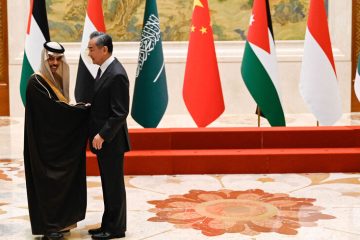
China on Israel-Palestine: Positioning Itself as an Empathetic Great Power?
Almost a week after Hamas launched a surprise attack on Israel on October 7, China’s foreign minister, Wang Yi, called for a global peace conference and a ceasefire. China’s messages can be boiled down to three main points: 1) condemning attacks on both Israeli and Palestinian civilians and the breaking of international law, 2) calling for dialogue between the warring sides, and 3) emphasising the necessity of a two-state solution. China’s messaging follows a similar pattern expressed after previous Israel-Palestine escalations, whereby Beijing refuses to take sides explicitly, urging restraint and promoting peace talks. Chinese-Palestinian & Chinese-Israeli relations: China’s ‘neutrality’ leans in support of Palestine, at least rhetorically. While insisting on both Israel and Palestine’s right to statehood, Wang Yi …
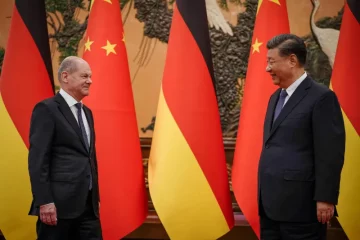
Wandel durch Handel: Germany’s strategic diplomacy vis-à-vis China and Taiwan
Relations between Germany and Taiwan strengthened in 2022, despite Germany’s reluctant acceptance of Beijing’s One China Policy. Meanwhile, bilateral economic ties with both Taiwan and China have sparked discussions about Germany’s foreign policy goals and whether Berlin is reviving the antiquated diplomatic strategy known as Wandel durch Handel (“Change through Trade”) amidst Europe’s growing security vulnerabilities. In June 2023, Germany and the Chinese state-owned firm COSCO signed a contract for the sale of shares in Hamburg’s seaports. Chancellor Olaf Scholz’s visits to Taiwan, once unimaginable , were strategically timed to coincide with the contract. Two months later, Germany established an agreement with TSMC, Taiwan’s largest semiconductor company. Prevailing narratives among policy circles view Wandel durch Handel as a relic from Germany’s regulatory …
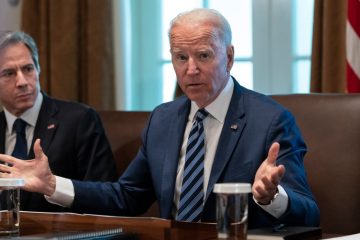
Variable Geometry: What Washington is Getting Wrong
The new buzzword echoing through the halls of the White House is variable geometry. Faced with a panoply of transnational threats, the Biden administration is building fit-for-purpose coalitions between countries and other stakeholders, including local governments, the private sector, NGOs, and academia. Coalitions have been formed to address discrete policy challenges, including COVID-19, food security, providing aid to displaced Ukrainians, and most recently, synthetic opioids. In times of polycrisis, variable geometry suggests that the “America First” policy is no longer viable. Yet, the diplomatic currency of the United States remains zero-sum; official statements about defending the liberal world order continue to echo the end of history thesis, without accounting for the growing demands of middle powers – particularly those in …
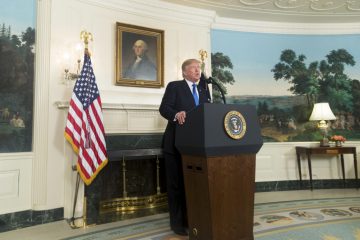
Trump’s Nuclear Gambit Threatens US Security
Three years ago, US-Iranian relations could not have been better. Once declared part of the ‘Axis of Evil’ by then-president George W. Bush, the Iran Nuclear Deal signed by his successor Barack Obama heralded a new age of more constructive ties with Tehran and the promise of greater nuclear security. While critics raised concerns that Iran would renege on the deal, these fears had proven unfounded so far – the IAEA confirmed that Iran has complied with its obligations under the agreement. Nonetheless, the Trump administration withdrew the US from the nuclear deal. Additionally, Trump has re-imposed all sanctions removed in 2015. With trust between Washington and Tehran in tatters and US carrier groups deployed to the Persian Gulf, the …

Diplomacy, Academia, and The Threat of Irrelevance: A conversation with Tom Fletcher, author of Naked Diplomacy
Dr Tristen Naylor, Oxford’s Lecturer in Diplomatic Studies, chatted with Tom Fletcher, the former British Ambassador and Downing Street foreign policy advisor, about his new book, Naked Diplomacy. In this three-part series their discussion explores everything from diplomacy in the digital era to the divide between academics and policy makers — with a nod to the intertextuality of W.H. Auden and Black Sabbath along the way. See Part II here. TN: Tom, your new book is Naked Diplomacy and your blog is The Naked Diplomat. Borrowing from Jamie Oliver as the ‘Naked Chef’, who sought to strip cooking back to its bare essentials, you’re seeking to do the same with diplomacy. Why do you think that doing so is necessary now? TF: …

When States Act Emotionally: Professor Todd Hall Answers Questions on His New Book
In this interview, Todd Hall comments on some of the key aspects of his most recent publication Emotional Diplomacy: Official Emotion on the International Stage. How do state representatives use emotional displays strategically and what can they achieve by applying emotion to diplomacy? How do anger, sympathy and guilt feature in international relations? It is with clarity and distinction, that Todd Hall lays out how emotions are used to influence outcomes in international relations, both in theory and in practice.
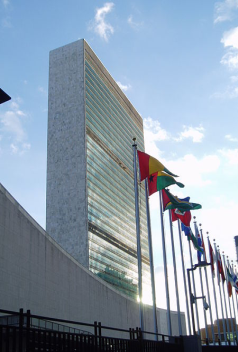
Neither Cynical nor Dogmatic: The right attitude to international law
Public International Law tends to elicit from many people a cynical response; from many others a dogmatic attitude. International Law is thus seen by the first as irrelevant and unrealistic and by the latter as deserving a religious-like adoration.
Neither position is warranted by reality.
The U.S. Needs a Grand Strategy, Not Grandstanding
In the New Hampshire debate, Mitt Romney trumpeted his willingness to engage China in a trade war. Romney’s longstanding efforts to paint himself as someone willing to stand up to China exemplify an alarming trend of China-bashing in U.S. politics. Rick Santorum, among others, has echoed Romney, declaring, “I want to beat China.” Such statements are primarily targeted at shoring up political support and secondarily at painting President Obama as being soft on China. We should not take them as an accurate indication of future policy. And despite this overriding political calculus, these remarks are on to something – Beijing’s currency manipulation gives China a competitive advantage in global trade, and its abuse of intellectual property rights ought to be …









